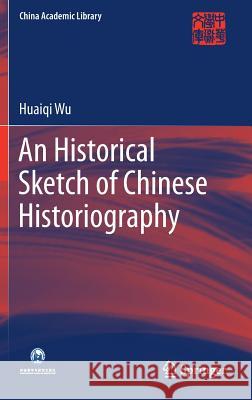An Historical Sketch of Chinese Historiography » książka
topmenu
An Historical Sketch of Chinese Historiography
ISBN-13: 9783662562529 / Angielski / Twarda / 2018 / 503 str.
Kategorie BISAC:
Wydawca:
Springer
Seria wydawnicza:
Język:
Angielski
ISBN-13:
9783662562529
Rok wydania:
2018
Wydanie:
2018
Numer serii:
000458290
Ilość stron:
503
Waga:
0.88 kg
Wymiary:
23.39 x 15.6 x 2.87
Oprawa:
Twarda
Wolumenów:
01
Dodatkowe informacje:
Bibliografia
Wydanie ilustrowane
Wydanie ilustrowane











